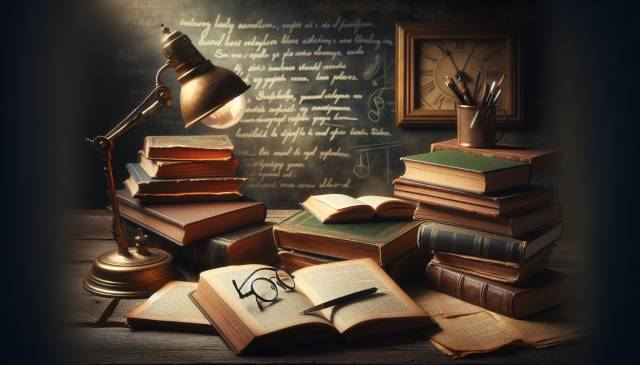
Literature is more than just words on a page; itâs a portal to different worlds, ideas, and cultures. For learners of all ages, diving into literature can spark creativity, enhance critical thinking, and foster a deeper understanding of humanity. This post will explore the significance of literature, recommend essential readings, and provide tips on how to approach literary studies effectively.
The Importance of Literature in Education
Literature serves as a mirror reflecting society, allowing readers to engage with diverse perspectives and experiences. Here are a few reasons why literature is an essential component of education:
- Cultural Awareness: Literature exposes readers to different cultures and viewpoints, fostering empathy and understanding.
- Critical Thinking: Analyzing texts develops critical thinking skills, as students learn to interpret meaning, identify themes, and assess arguments.
- Communication Skills: Engaging with literature enhances vocabulary and writing skills, enabling students to express their ideas more clearly.
- Emotional Intelligence: Literature often explores complex emotions and human experiences, helping readers to connect with their own feelings.
Essential Literary Works to Explore
While the world of literature is vast, certain works stand out for their impact and relevance. Here are some must-read books and authors that every learner should consider:
- âTo Kill a Mockingbirdâ by Harper Lee: A powerful exploration of racial injustice and moral growth.
- â1984â by George Orwell: A chilling dystopian novel that examines themes of surveillance, totalitarianism, and individuality.
- âPride and Prejudiceâ by Jane Austen: This classic delves into themes of love, class, and societal expectations in early 19th-century England.
- âThe Great Gatsbyâ by F. Scott Fitzgerald: A critique of the American Dream set in the Roaring Twenties, filled with rich symbolism.
- âThe Catcher in the Ryeâ by J.D. Salinger: A coming-of-age story that captures the struggles of adolescence and identity.
Tips for Approaching Literary Studies
Engaging with literature can sometimes be daunting, especially when faced with complex texts. Here are some strategies to help you navigate literary studies:
- Read Actively: Take notes, highlight important passages, and ask questions as you read to enhance comprehension.
- Join a Discussion Group: Discussing literature with peers can offer new insights and deepen your understanding of the text.
- Explore Literary Context: Understand the historical and cultural background of a work to appreciate its significance fully.
- Write Reflectively: Keep a journal of your thoughts and feelings about the literature you read to track your growth as a reader.
The Future of Literature in Education
As technology evolves, the way we consume literature is also changing. E-books, audiobooks, and online literature courses are making literary works more accessible than ever. Here are some trends shaping the future of literature in education:
- Digital Literacy: Integrating digital platforms into literary studies to enhance engagement and accessibility.
- Interdisciplinary Approaches: Combining literature with other subjects, like history and science, to create a more enriching learning experience.
- Global Literature: Expanding curricula to include voices from around the globe, promoting a more inclusive understanding of literature.
In conclusion, literature is a powerful tool for education that can enrich our minds and souls. Whether youâre a seasoned reader or just starting your journey through the literary world, embracing literature will undoubtedly enhance your understanding of yourself and the world around you. So, pick up a book, explore new genres, and let the pages transport you to places unknown!

